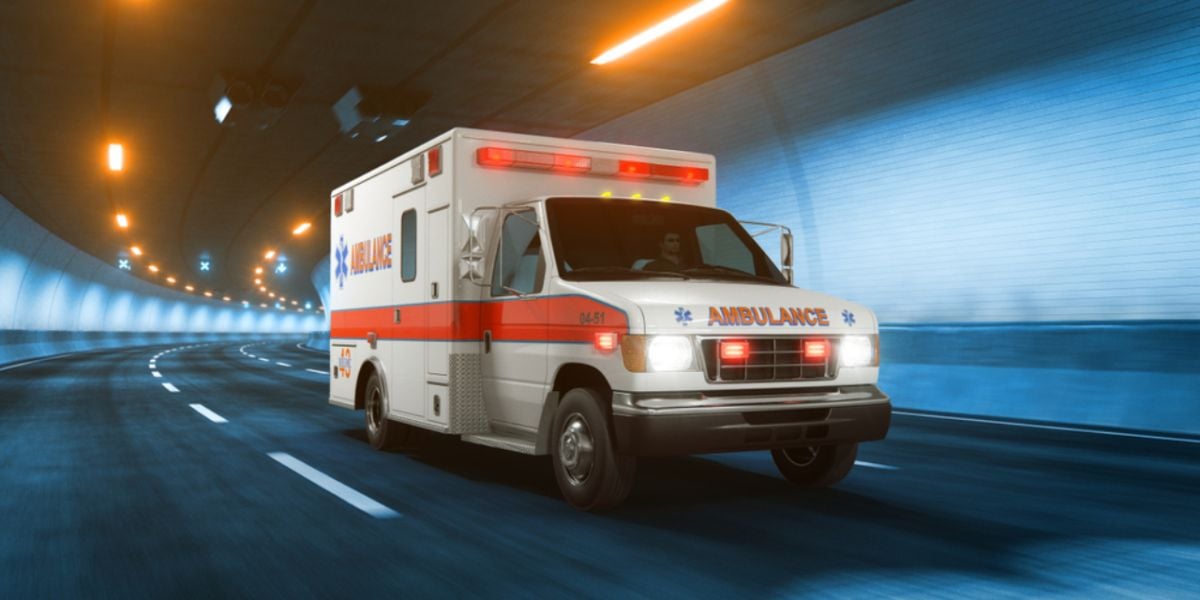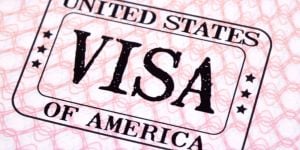
Although the United States is generally a safe destination for both tourism and expat lifestyles, navigating accidents and emergencies is an essential aspect of life in any country, and the United States is no exception. For expatriates settling into their new lives, understanding how emergencies are handled, knowing the relevant procedures, and being aware of local resources can be crucial. Keep reading for insights into America's crime rate, emergency response system, medical care, safety measures, and emergency preparedness in the US.
Emergency response system in the US: How it works
In the United States, the emergency response system is a coordinated effort to address various critical situations promptly. The cornerstone of this system is the 911 service, acting as the first point of contact during emergencies. When an incident occurs, dialing 911 connects individuals with highly trained operators who dispatch the appropriate assistance. Police, fire departments, and medical responders play distinct roles in this process. Police respond to law enforcement matters; fire departments handle fires and related emergencies; and medical responders provide immediate medical aid.
Health emergencies in the US
Accessing timely and appropriate medical care is paramount in emergencies. The US healthcare system comprises a network of hospitals, clinics, and specialized medical facilities. While emergencies may necessitate a visit to the nearest hospital, understanding the availability of urgent care centers and walk-in clinics can expedite treatment for less critical issues. As always, if you are experiencing a medical emergency, call 911.
Firstly, you should be aware that the United States does not offer free healthcare (or rather healthcare paid for by taxes) to its citizens, residents, or visitors. This means that it is essential that you get health insurance for your stay in the country.
Medical costs in the United States are some of the highest in the world. A simple visit to the emergency room averages between $900 and $2,500, while an overnight hospital stay costs around $13,600 on average. If you are in the United States without health insurance, you will be expected to pay for all your treatments yourself, and a severe health problem can leave a person in deep financial trouble that will take a very long time to recover from.
If you are traveling to the United States for a short visit, you should purchase travel insurance in your home country for the duration of your stay - make sure that your insurance covers emergency treatments and evacuation. Your university or employer should provide suitable insurance if you are studying or employed in the US; otherwise, you can purchase a health insurance plan.
If you need emergency or standard care while in the US, have all your insurance information ready, as this will determine which hospital you are taken to for treatment. Remember that if you are in the United States without insurance and require emergency treatment, you will be responsible for all related expenses, including surgeries, ambulance transportation, and medical supplies.
Crime in the United States
The US has a higher crime rate than other European developed countries. However, as the US media tends to "sensationalize", keep in mind that things are often not as bad as they seem on TV or in the news. However, statistics show that there is more crime in America than in other countries with similar levels of wealth and development. The FBI homicide rate recently fell to 5.3 per 100,000 annually, down from 6.8 per 100,000. While the overall crime rate remains higher than Western European averages, violent crime has stabilized and even declined compared to recent years. Lenient gun laws and a substantial gap between the rich and the poor are some of the most frequently quoted reasons for the higher crime rate in the country.
Remember that large cities are more crime-prone than quiet suburban areas and rural communities. It is also important to note that crime is often concentrated in the so-called "bad neighborhoods". It is, therefore, essential to research the neighborhoods in the city you are moving to before renting a place.
You should also follow general safety precautions: do not walk alone in unfamiliar areas, avoid taking public transportation late at night, and lock your car door and apartment. It is also a good idea to consult residents on safety practices in the area.
Good to know:
One of the most significant differences between your home country and the United States might be the Second Amendment: the right of the people to keep and bear arms. Gun ownership laws differ from state to state; some states are traditionally more "gun-friendly" than others. As of 2025, 27 states allow permitless concealed carry, while 23 require permits. This is something you should be aware of when living in the US, and you should avoid any physical altercations.
If you run into any trouble, dial 911 to call the police. During the call, do your best to stay calm and provide as much relevant information as possible: give your name and current location and describe your emergency.
Natural disaster preparedness in the US
For expats in the United States, being prepared for natural disasters is essential due to the country's diverse range of potential emergencies. Common types of natural disasters include hurricanes, tornadoes, earthquakes, wildfires, and winter storms. Understanding the specific risks in your region and being aware of evacuation routes and emergency shelters can save lives. Assemble a disaster supply kit with essentials like water, non-perishable food, medications, and important documents. Stay informed by monitoring local news and weather updates, and sign up for emergency alerts provided by local authorities. Establish a family communication plan, ensuring everyone knows how to contact each other during an emergency.
The government uses warning systems to communicate about natural disasters and emergencies to citizens. These include:
- Wireless Emergency Alerts (WEA): WEA is a nationwide system that delivers short emergency messages to mobile phones. These alerts include critical information about severe weather, natural disasters, AMBER alerts for missing children, and presidential notifications. WEA messages are sent based on the location of the mobile device, ensuring that people receive alerts relevant to their current area.
- Emergency Alert System (EAS): EAS is a comprehensive public warning system that broadcasts emergency messages via television, radio, and cable. It's designed to provide timely information during emergencies, including severe weather events, natural disasters, and other critical situations. EAS alerts are broadcast on a national, state, and local level.
- NOAA Weather Radio: The NOAA Weather Radio provides continuous weather information directly from the nearest National Weather Service (NWS) office. It broadcasts alerts for severe weather events such as hurricanes, tornadoes, and winter storms. NOAA Weather Radio is a reliable source of weather updates and emergency information, particularly in areas prone to weather-related hazards.
Driving safety in the US
Driving in the United State s is unavoidable unless you live in a city like New York. The distances are large, and relying on public transportation for everyday commutes can be a losing game. Thus, one of the first things you must do after settling in the US is to get familiar with the traffic rules and regulations.
Getting in a fender-bender in the city center is undoubtedly unpleasant but, in most cases, is something that your insurance company will quickly resolve. On the other hand, a high-speed accident on the highway can be severe and potentially fatal: high traffic volumes and speeds and the time it may take for emergency services to reach a remote location are all contributing factors.
There are over 40,000 traffic deaths annually in the United States, and around a third of these are related to drunk driving. You must never drink and drive, and there are very harsh penalties in the US for driving under the influence.
Texting and driving is another frequent cause of road accidents. Research by the National Safety Council shows that texting or talking on the phone (hands-free and handheld) accounts for almost 30% of all car accidents.
While in the US, follow all driving rules and regulations thoroughly. If you have a car accident in the US with no injuries, you can exchange insurance information with the other driver and call your insurance company. If the car accident is severe, call 911.
Safety in the US: everyday precautions and resources
Accidents and emergencies happen suddenly and often allow little time to prepare, but there are things you can do to make experiencing such a situation much less likely. Staying safe in the US combines common sense, avoiding unnecessary risks, preparation, and use of available resources.
Expats and travelers should research neighborhoods before moving or visiting, remain aware of their surroundings in public areas, and avoid risky zones, especially at night. Secure your valuables, keep emergency contacts accessible, and sign up for local weather or safety alerts.
Keep a well-stocked emergency preparedness kit with essentials such as bottled water, non-perishable food, a flashlight, batteries, first-aid supplies, essential medications, and copies of important documents. Make sure everyone in your household knows where it is stored.
Be cautious on public transportation, limit sharing of personal details online, and follow local guidance, especially during severe weather or public health incidents. Learn how to contact 911 and identify nearby hospitals and police stations. Save emergency numbers like poison control in your phone.
Taking first aid courses is a practival way to feel more prepared for emergencies, and there are a number of local providers like the American Heart Association and the Red Cross.
Make sure you have comprehensive health insurance and understand the ins and outs of your policy.
Important helplines to be aware of include:
- For all life-threatening emergencies (police, fire, ambulance): dial 911.
- For mental-health crises and suicide prevention: dial 988
- For poison control (substances, overdose, unwanted ingestion): 1 800 222 1222.
- For disaster distress support: 1 800 985 5990
Useful links:
911.gov
We do our best to provide accurate and up to date information. However, if you have noticed any inaccuracies in this article, please let us know in the comments section below.








